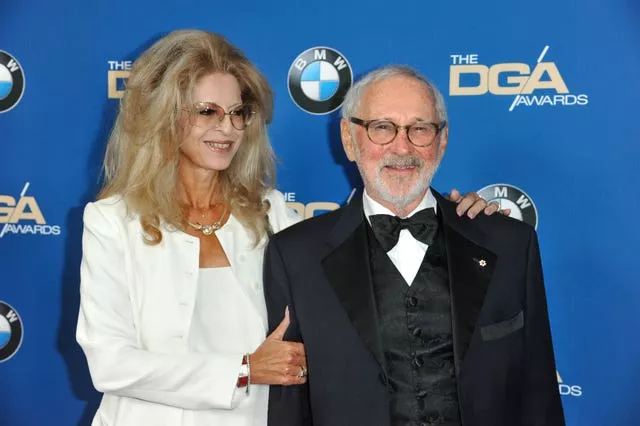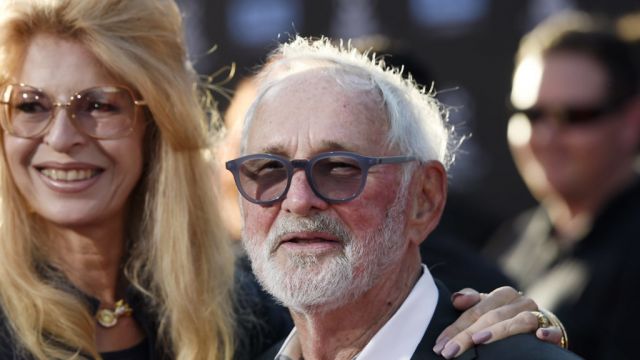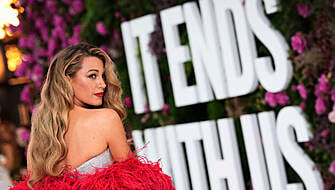Norman Jewison, the Canadian-born director whose Hollywood films ranged from Doris Day comedies and Moonstruck to social dramas such as the Oscar-winning In The Heat Of The Night, has died aged 97.
Jewison, a three-time Oscar nominee who in 1999 received an Academy Award for lifetime achievement, died “peacefully” on Saturday, according to publicist Jeff Sanderson.
Additional details were not immediately available.
Throughout his long career, Jewison combined light entertainment with topical films that appealed to him on a deeply personal level.
As Jewison was ending his military service in the Canadian navy during the Second World War, he hitchhiked through the American South and had a close-up view of Jim Crow segregation.
In his autobiography This Terrible Business Has Been Good to Me, he noted that racism and injustice became his most common themes.
“Every time a film deals with racism, many Americans feel uncomfortable,” he wrote.
“Yet it has to be confronted. We have to deal with prejudice and injustice or we will never understand what is good and evil, right and wrong; we need to feel how ‘the other’ feels.”
He drew upon his experiences for 1967’s In The Heat Of The Night, starring Rod Steiger as a white, racist, small-town sheriff and Sidney Poitier as a black detective from Philadelphia trying to help solve a murder and eventually forming a working relationship with the hostile local lawman.
James Baldwin condemned the film’s “appalling distance from reality” and thought the director trapped in a fantasy of racial harmony that would only heighten “black rage and despair”.
But The New York Times’ Bosley Crowther was among the critics who found the movie powerful and inspiring and in a year featuring such landmarks as The Graduate and Bonnie And Clyde, Jewison’s production won the Academy Award for best picture while Steiger took home the best-actor Oscar. Jewison lost out for best director to Mike Nichols of The Graduate.
Among those who encouraged Jewison while making In The Heat Of The Night was Robert F Kennedy, whom the director met during a ski trip in Sun Valley, Idaho.

“I told him I made films and he asked what kind I make,” he recalled in a 2011 interview with The Hollywood Reporter.
“So I told him that I was working on In The Heat Of The Night and that it’s about two cops: one a white sheriff from Mississippi and the other a black detective from Philadelphia. I told him it was a film about tolerance. So he listened and nodded and said, ‘You know, Norman, timing is everything. In politics, in art, in life itself’. I never forgot that.”
He received two other Oscar nominations, for Fiddler On The Roof and Moonstruck, the beloved romantic comedy for which Cher won an Academy Award for best actress.
He also worked on such notable films as the Cold War spoof The Russian Are Coming, The Russians Are Coming, the Steve McQueen thriller The Thomas Crown Affair and a pair of movies featuring Denzel Washington: the racial drama A Soldier’s Story and The Hurricane, starring Washington as wrongly imprisoned boxer Rubin “Hurricane” Carter.
A third project with Washington never made it to production.
In the early 1990s, Jewison was set to direct a biography of Malcolm X but backed out amid protests from Spike Lee and others that a white director should not make the film. Lee ended up directing.
Five Jewison films received best Oscar nominations: In The Heat Of The Night; The Russian Are Coming, The Russians Are Coming; Fiddler On The Roof; Moonstruck; and A Soldier’s Story.
Jewison and his wife Margaret Ann Dixon had three children, sons Kevin and Michael and daughter Jennifer Ann, who became an actress and appeared in the Jewison films Agnes Of God and Best Friends. The Jewisons were married for 51 years until her death in 2004. He married Lynne St David in 2010.
Jewison, honoured by Canada in 2003 with a Governor General’s Performing Arts Award, remained close to his home country.
When he was not working, he lived on a 200-acre farm near Toronto, where he raised horses and cattle and produced maple syrup.
He founded the Canadian Film Centre in 1988 and for years hosted barbecues during the Toronto Film Festival.







